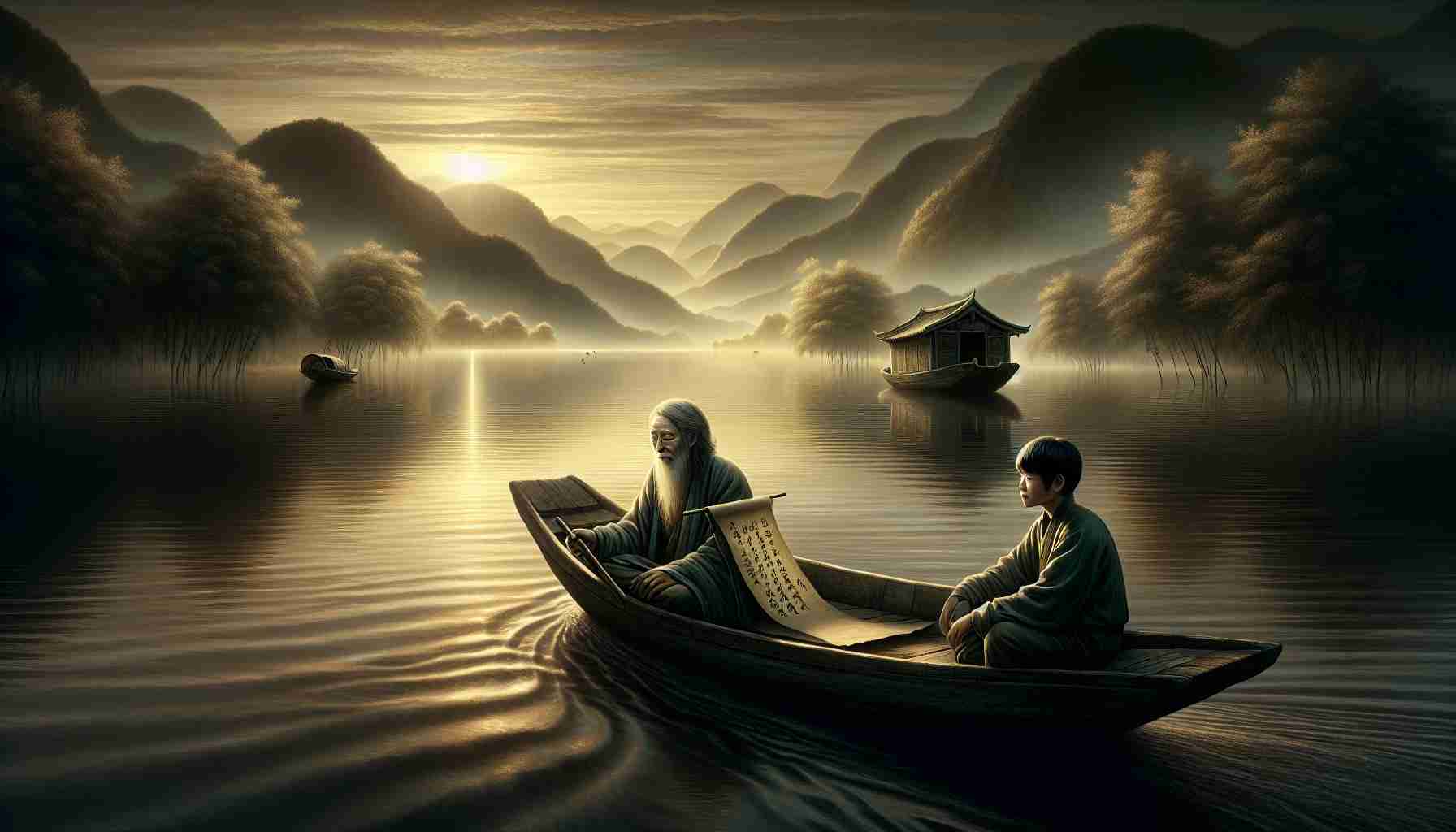

The morning fog drifted low over the quiet river. I was a young fisherman then, just fifteen, and full of pride. My boat was sturdy, my nets strong, and I believed I knew everything there was to know about the water.
That day, I paddled out before sunrise, hoping for a big catch. The river was still, like glass, and I smiled to myself. “Perfect,” I whispered. I reached the middle of the water and dropped my nets, waiting patiently, feeling sure I deserved the best.
But then, from the corner of my eye, I saw a shape moving through the mist. Another boat was floating right toward mine. I stood quickly, angry. “Who dares bump into me?” I muttered. “I’m fishing here!” My heart pounded as the empty boat drifted closer, slowly and silently, like a ghost.
“Get out of the way!” I shouted. “Are you asleep?” But the boat said nothing. Closer it came, and then—thud—it knocked gently into mine.
I leapt forward, ready to see who had dared disturb me.
But...the boat was empty.
No one sat inside. No oars, no nets, not even a rope. Just a hollow wooden shell floating slowly on the river’s current.
I blinked. My anger had nowhere to go. I shouted again, a little softer. “What’s wrong with this boat?” My voice trembled, not with fear, but confusion.
Then I sat down. The river was still again. The boat bobbed next to mine like a quiet friend. And in that silence, I remembered something my grandfather used to say.
“Sometimes, life bumps into you,” he told me one evening by the fire, “but it isn’t always someone’s fault. If you get angry at an empty boat, you’re only yelling at yourself.”
I laughed out loud then—not because it was funny, but because I finally understood.
The boat hadn’t meant to hit me. It was just floating. My anger had come from thinking someone was trying to harm me. But there was no one to blame. Just the wind and the river.
I realized something else, too: I spent so much time trying to control the river, the fish, other people. But some things, I couldn’t control. And I didn’t need to.
I practiced fishing again, quieter this time. I moved gently with the water, not against it. I let the net sink slowly. I didn't pull or fight. I just waited.
And to my surprise, the river gave me more fish than ever.
That day, I learned something more valuable than a full net. I learned about wu wei—doing without forcing. I felt it deep inside me. Simple and peaceful.
Since then, whenever I feel anger bubbling up or try too hard to control things, I remember the empty boat. I let go. I float.
I know now: peace doesn’t come from chasing or shouting. It comes from floating with the river—just like that boat.
The morning fog drifted low over the quiet river. I was a young fisherman then, just fifteen, and full of pride. My boat was sturdy, my nets strong, and I believed I knew everything there was to know about the water.
That day, I paddled out before sunrise, hoping for a big catch. The river was still, like glass, and I smiled to myself. “Perfect,” I whispered. I reached the middle of the water and dropped my nets, waiting patiently, feeling sure I deserved the best.
But then, from the corner of my eye, I saw a shape moving through the mist. Another boat was floating right toward mine. I stood quickly, angry. “Who dares bump into me?” I muttered. “I’m fishing here!” My heart pounded as the empty boat drifted closer, slowly and silently, like a ghost.
“Get out of the way!” I shouted. “Are you asleep?” But the boat said nothing. Closer it came, and then—thud—it knocked gently into mine.
I leapt forward, ready to see who had dared disturb me.
But...the boat was empty.
No one sat inside. No oars, no nets, not even a rope. Just a hollow wooden shell floating slowly on the river’s current.
I blinked. My anger had nowhere to go. I shouted again, a little softer. “What’s wrong with this boat?” My voice trembled, not with fear, but confusion.
Then I sat down. The river was still again. The boat bobbed next to mine like a quiet friend. And in that silence, I remembered something my grandfather used to say.
“Sometimes, life bumps into you,” he told me one evening by the fire, “but it isn’t always someone’s fault. If you get angry at an empty boat, you’re only yelling at yourself.”
I laughed out loud then—not because it was funny, but because I finally understood.
The boat hadn’t meant to hit me. It was just floating. My anger had come from thinking someone was trying to harm me. But there was no one to blame. Just the wind and the river.
I realized something else, too: I spent so much time trying to control the river, the fish, other people. But some things, I couldn’t control. And I didn’t need to.
I practiced fishing again, quieter this time. I moved gently with the water, not against it. I let the net sink slowly. I didn't pull or fight. I just waited.
And to my surprise, the river gave me more fish than ever.
That day, I learned something more valuable than a full net. I learned about wu wei—doing without forcing. I felt it deep inside me. Simple and peaceful.
Since then, whenever I feel anger bubbling up or try too hard to control things, I remember the empty boat. I let go. I float.
I know now: peace doesn’t come from chasing or shouting. It comes from floating with the river—just like that boat.